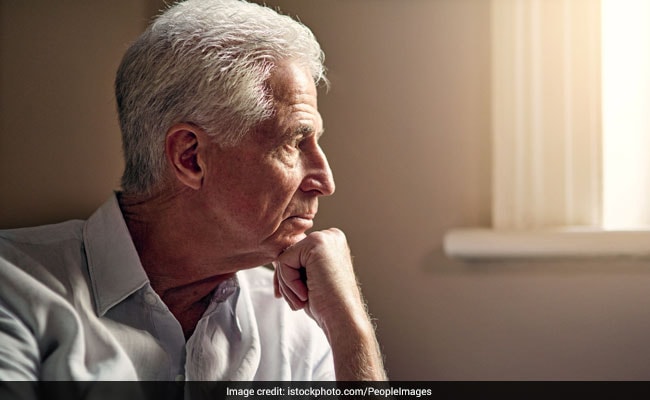Someone suffering from dementia goes through different stages. Here are all the details about these 7 stages of dementia.

Someone with dementia may forget things quite often
HIGHLIGHTS
- Dementia leads to memory loss which worsens with time
- Symptoms of dementia can affect day to day functioning of the patient
- Dementia symptoms can be divided into 7 stages
Dementia describes a group of symptoms that affect memory, thinking and social abilities. This condition worsens with time. The symptoms of dementia affect day to day activities of the patient. This condition occurs due to physical changes in the brain. According to WHO, dementia is one of the major causes of disability and dependency among older people worldwide. There is often a lack of awareness and understanding of dementia, resulting in stigmatization and barriers to diagnosis and care. The impact of dementia on carers, family and society at large can be physical, psychological, social and economic. Worldwide around 50 million people have dementia. Every year, there are nearly 10 million new cases. The estimated proportion of the general population aged 60 and over with dementia at a given time is between 5-8%. The total number of people with dementia is projected to reach 82 million in 2030 and 152 in 2050.
Stages of dementia
Doctors conduct a series of tests to diagnose this condition. Someone suffering from dementia goes through different stages. The severity of the symptoms are divided into 7 stages. But in some cases, these may vary depending on the area affected by the condition. Here are the 7 stages of dementia you need to know-
Stage 1: No Cognitive Decline
At this stage, the patient will not show any symptom. There is no impairment and the mental function remains normal.
It can be hard to spot the symptoms at this stage but tests may reveal the problem.
Stage 2: Mild Decline
This stage involves very mild symptoms which are usually mistaken to be normal or as an effect of ageing. For example- forgetting names of places, placement of objects or forgetting phrases. These symptoms are not evident to their loved ones.
Also read: Irregular Heart Rate, Carotid Disease May Up Dementia Risk
Stage 3: Mild Cognitive Decline
At this stage, the symptoms worsen. You may notice changes in thinking and reasoning abilities. Symptoms at this stage become quite noticeable. A person may find difficulty in concentrating and finding the right words. At this time it may cause difficulty in recalling recent events.

Dementia can cause difficulty in walking at later stages
Photo Credit: iStock
Stage 4: Moderate Cognitive Decline
At this stage, someone with dementia may face difficulty in handling money and travelling to places. Making plans also becomes a difficult task.
Stage 5: Moderately severe decline
At this stage, the patient requires assistance to complete day to day tasks. He/she may forget minor details like phone numbers, address or names of children/ grandchildren.
Also read: Lung Disease Could Lead To Dementia In Later Life: Study
Stage 6: Severe Cognitive Decline (Middle Dementia)
This stage causes symptoms like forgetting names of spouses or major evens of life, difficulty in speaking, changes in personality or emotions or anxiety. A person may require assistance in day to day tasks like going to the restroom or while eating.
Also read: This Is By Far The Best Way To Reduce Risk Of Dementia
Stage 7: Very Severe Cognitive Decline (Late Dementia)
At this stage, someone with dementia spends most of the time in bed and cannot walk. He/she is not able to speak thoughts.
Early diagnosis helps an individual get access to timely treatment.
Disclaimer: This content including advice provides generic information only. It is in no way a substitute for qualified medical opinion. Always consult a specialist or your own doctor for more information. NDTV does not claim responsibility for this information.
DoctorNDTV is the one stop site for all your health needs providing the most credible health information, health news and tips with expert advice on healthy living, diet plans, informative videos etc. You can get the most relevant and accurate info you need about health problems like diabetes, cancer, pregnancy, HIV and AIDS, weight loss and many other lifestyle diseases. We have a panel of over 350 experts who help us develop content by giving their valuable inputs and bringing to us the latest in the world of healthcare.














